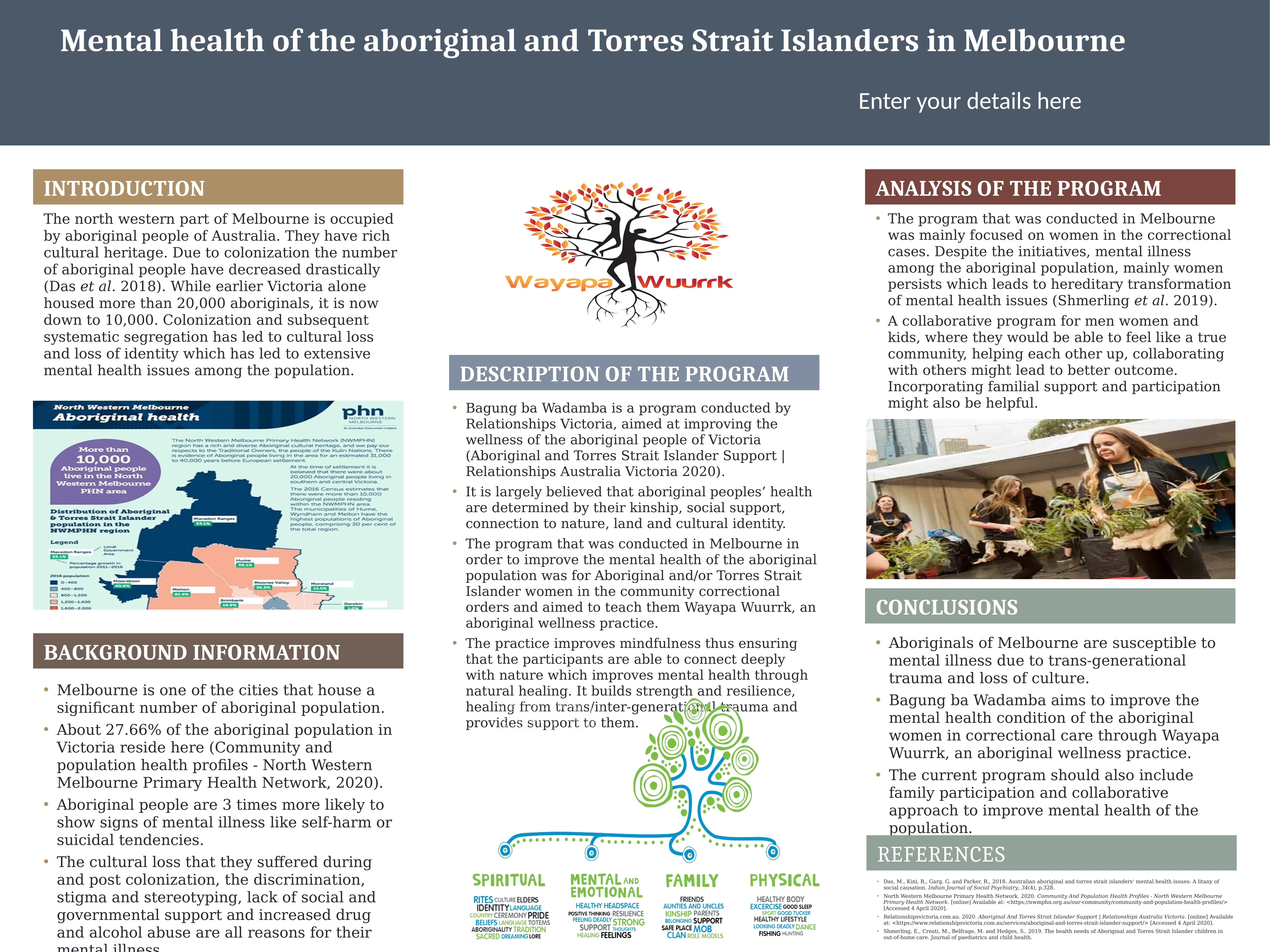Analysis of Mental Health Programs for Aboriginal People in Melbourne
VerifiedAdded on 2022/09/12
|1
|672
|28
Report
AI Summary
This report provides an overview of the mental health challenges faced by the Aboriginal population in Melbourne, Australia, highlighting the impact of colonization, cultural loss, and systemic discrimination. It examines the prevalence of mental illness, including self-harm and suicidal tendencies, and identifies contributing factors such as trans-generational trauma, lack of social support, and substance abuse. The report analyzes the Bagung ba Wadamba program, an initiative aimed at improving the mental wellness of Aboriginal women through Wayapa Wuurrk, an indigenous wellness practice. It discusses the program's limitations and suggests incorporating familial support and collaborative approaches to enhance its effectiveness and better address the complex mental health needs of the community. The report concludes by emphasizing the need for comprehensive, community-based interventions to promote healing and resilience within Melbourne's Aboriginal population.






![[object Object]](/_next/static/media/star-bottom.7253800d.svg)